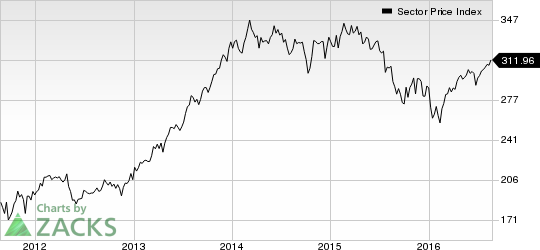The health insurance industry has been creating a lot of noise lately with players cribbing about their bad experience in the individual exchange business on public exchanges also popularly called Obamacare.
While UnitedHealth Group Inc. (NYSE:UNH) was a the first to disclose its unpleasant experience on public exchanges last year, this year Aetna Inc. (NYSE:AET) , Humana Inc. (NYSE:HUM) , Anthem Inc. (NYSE:ANTM) and now CIGNA Corp. (NYSE:CI) have joined the bandwagon.
UnitedHealth which was present in 34 states in 2016, has already exited public exchanges in more than two dozen markets and will exit more. In2017, it will completely exit the business or at the most be present on only three to four. Aetna has a similar saga to share. After its second-quarter earnings, the company announced that it is calling quits in the public exchange business in 11 of the 15 states in which it is currently present.
Aetna will reduce its individual public exchange participation to 242 counties from 778 for the 2017 plan year. This development comes after Aetna suffered pretax loss of $200 million in the second quarter and total pretax loss of more than $430 million since Jan 2014 in its individual products sold via public exchanges.Aetna is now expecting losses (pretax) north of $300 million on policies sold on public exchanges for 2016.
Another player Humana Inc. (HUM) recently announced it will sell plans through public exchanges in 11 states in 2017, down from 15 states this year because of losses. Anthem Inc. (ANTM) also witnessed huge claims in its public exchange business in the second quarter.
While at the outset it seemed that public exchanges would add to the topline of the players by bringing in more enrollments, it did not turn out that straight. Insurers witnessed an adverse mix of population signing up for insurance on these exchanges. Those who sought insurance were mostly sick who went on to utilize healthservices, therefore causing a spike in claim ratio. In short, the premium paid by these members did not compensate for the care they sought, thus giving rise to losses on these policies.
Friction with Regulators
Up next, the players might see the axing of the mega mergers of Aetna with Humana and Anthem with Cigna announced last year. These mergers have drawn flak from regulators on concerns that the deals will stifle competition and reduce the number of players in the industry from five to three. The Department of Justice is closely scrutinizing the deal and has sued each of the four parties involved to block the merger.
The cause of concern for the regulators is that the mergers would mean more power in the hands of the surviving companies Anthem and Aetna as theywill gain in size and scale. It is feared that the companies if equipped with more strength will bother less to serve its customers. It is also being contemplated that these insurers will have lesser incentive to improve the quality of their product and service since there will be fewer and smaller players to compete against them. They might also hike premium and increase out-of-pocket costs, and in turn harass customers.
Merger was the most sought after strategy by these players to grow faster in the rapidly changing health insurance industry. The players wanted to gain in scale and size in one shot via these mergers which would have given them an upper hand in negotiating claims with hospitals. Investment in technology from cost savings, expanded reach to care by gaining quick access to new markets were other advantages of the merger cited by them.
The health insurers are being caught up in a series of events one after another. The presidential election that is coming up is the next major event for the industry.
What does Presidential Election Hold for Insurers?
Obamacare has become a political fodder with a contentious election around the corner. Both candidates have spoken length and breadth about the law displaying their varied opinion.
The presidential candidates are looking at ways to fine tune the provisions of the healthcare legislation, which, if implemented, will upend the business models of insurers.
Democratic presidential candidate Hillary Clinton’s priority includes a crackdown on insurers to limit out-of-pocket costs. These costs are expenses like deductibles, coinsurance and copayments for covered services among others that aren't reimbursed by insurance.
Also on Hillary Clinton’s agenda is giving more power to lawmakers to reject undue rate hikes by health insurers.
Donald Trump on the other hand proposes to repeal the Affordable Care Act and replace it with something that would require a lot less money. He wants to propose a health plan that will return authority to the states and operate under free market principles. Trump’s plan will provide choice to buyers, provide individual tax relief for health insurance and keep plans portable and affordable. The plan will break health insurance company monopolies and allow individuals to buy across state lines. Health insurers will have a rough ride if Trump wins the election since he commented that “The insurance companies are getting rich on Obamacare. The insurance companies are getting rich on health care and health services and everything having to do with health. We are going to end that.”
As it is insurers seem to have no respite from the series of events unfolding one after another. Now, we have to wait and see how these players turn the tide in their favor.
CIGNA CORP (CI): Free Stock Analysis Report
AETNA INC-NEW (AET): Free Stock Analysis Report
HUMANA INC NEW (HUM): Free Stock Analysis Report
UNITEDHEALTH GP (UNH): Free Stock Analysis Report
ANTHEM INC (ANTM): Free Stock Analysis Report
Original post
Zacks Investment Research

